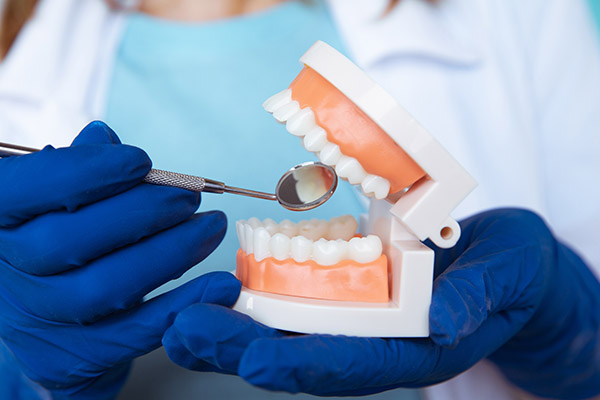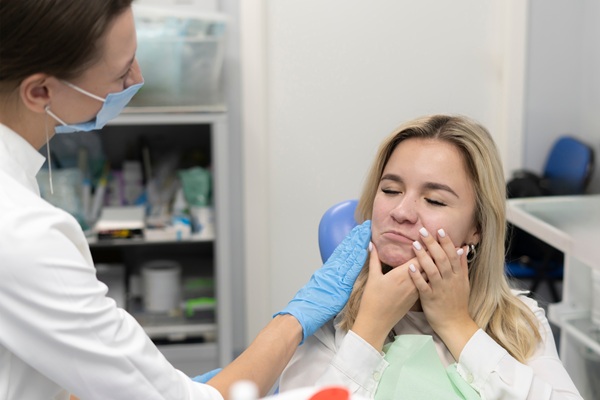Prevent Early Tooth Decay in Your Baby’s First Teeth

Just because your baby’s first teeth are not permanent does not mean they are not important and that early tooth decay cannot cause problems later in life. Lose them too soon, and problems can arise that will create issues for the adult teeth.
Start early
Start your baby’s oral care early on before the first teeth ever present themselves. Bacteria can form in baby’s mouth, and it is important to wipe down the gums gently with a clean, damp washcloth or soft baby toothbrush.
Bacteria can be spread to the baby’s mouth through the sharing of saliva. When spoons or cups are shared during feeding time or pacifiers are cleaned off in the caregiver’s mouth, bacteria are spread from the caregiver to the baby. This bacteria can sit in the mouth and begin to grow.
Baby’s first teeth
Once your baby’s first teeth present themselves, tooth decay can happen when the teeth are exposed to any food or drink other than water for long periods of time. Sugars quickly convert to acid by bacteria in the mouth. This acid begins to eat away at the outer enamel of baby’s first teeth.
It is not uncommon for parents to put their baby to bed with a bottle. When the bottle is filled with anything other than water, the liquid pools in the mouth and the sugars work away at the enamel in baby’s first teeth.
Tooth decay signs and prevention
It can be difficult to see tooth decay in a baby’s first teeth. It may first present itself as small white spots near the gum line. The earlier the treatment to stop the spreading of the tooth decay, the better chances of preventing further damage. Of course, the best treatment is complete prevention through proper oral care.
The following are simple oral care habits the family can adopt to protect baby’s first teeth from decay:
Do not give the baby a bottle when laying them down to sleep. In addition to being a hazard for tooth decay, sleeping with a bottle elevates the risk of ear infections, and the child could choke.
Carefully wipe down baby’s gums to clean them before the first teeth ever show. Once they do appear, use a baby toothbrush and a tiny dot of fluoride toothpaste to clean the teeth. Clean baby’s mouth twice a day, after breakfast and right before bed.
Check your water at home for fluoride. Children benefit from fluoride, and if your water does not have fluoride, the dentist may prescribe a fluoride supplement.
Limit the sugar. Between meals, provide children who drink out of sippy cups and who have moved on to food with water instead of milk or juice. Limit the amount of juice the baby receives to four ounces per day when six to 12 months old. Sugary food should not be served on a regular basis. Limit the amount of candy and sweet treats that are given.
Schedule a checkup
Before the baby turns one, schedule an appointment for their first dental checkup. The dentist will be able to help map out a healthy oral hygiene family plan to prevent tooth decay and address any issues that present themselves at the first and concurrent visits.
Request an appointment here: https://www.lilburnfamilydentistry.com or call Lilburn Family Dentistry at (770) 800-0178 for an appointment in our Lilburn office.
Check out what others are saying about our services on Yelp: Read our Yelp reviews.
Recent Posts
Your restorative dentist can present treatments that can fix your dental issues. You can have a new smile after your appointment. Some dental problems may need more than one visit. Knowing when to see a restorative dentist can help you get the right procedure to bring back your smile and dental health.A restorative dentist can…
A broken tooth can affect both oral health and confidence. Whether caused by biting into something hard, an accident, or underlying decay, prompt dental care is essential to prevent further damage and restore normal function. Fortunately, modern dentistry provides several reliable treatments that repair structural damage and rebuild a natural-looking smile. A cosmetic, family, or…
Broken or missing teeth can weaken a patient's bite force. Fortunately, a restorative dentist can repair these teeth and, in turn, improve bite force and chewing function. The goal is to help patients enjoy the benefits of a fully functional smile.If left in disrepair, a damaged or decayed tooth can lead to larger issues—such as…
Curious about what a restorative dentist does? Read on to learn more. The unexpected nature of dental injuries can turn ordinary moments into emergencies. These injuries impact oral health and comfort, whether it is from sports mishaps, accidental falls, or an auto accident. A restorative dentist has the skills and tools to repair and restore…


